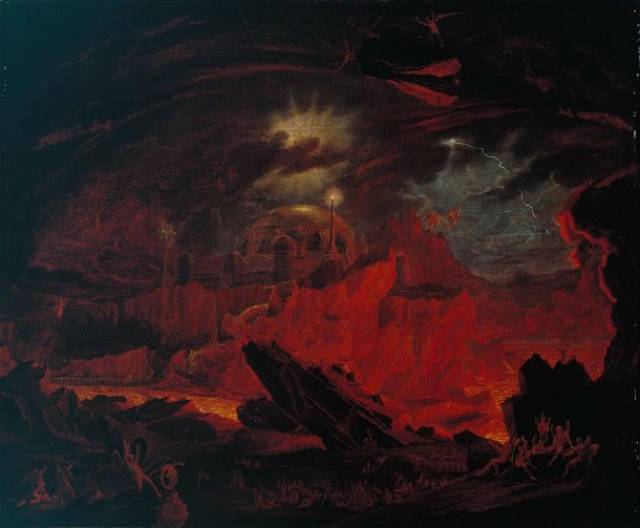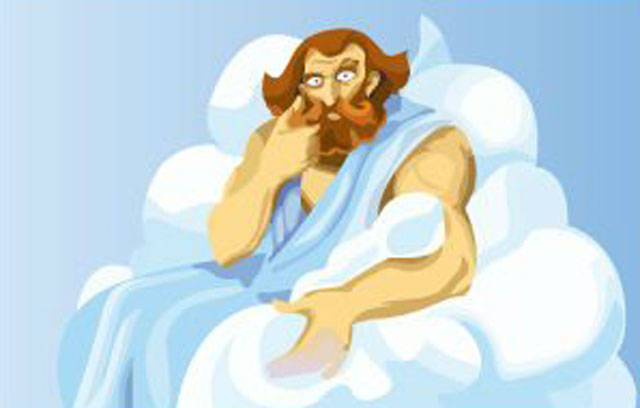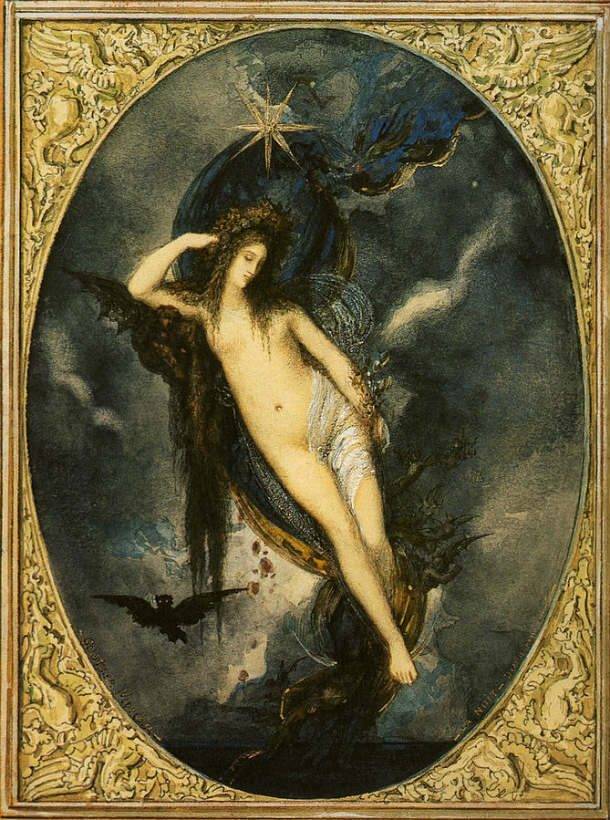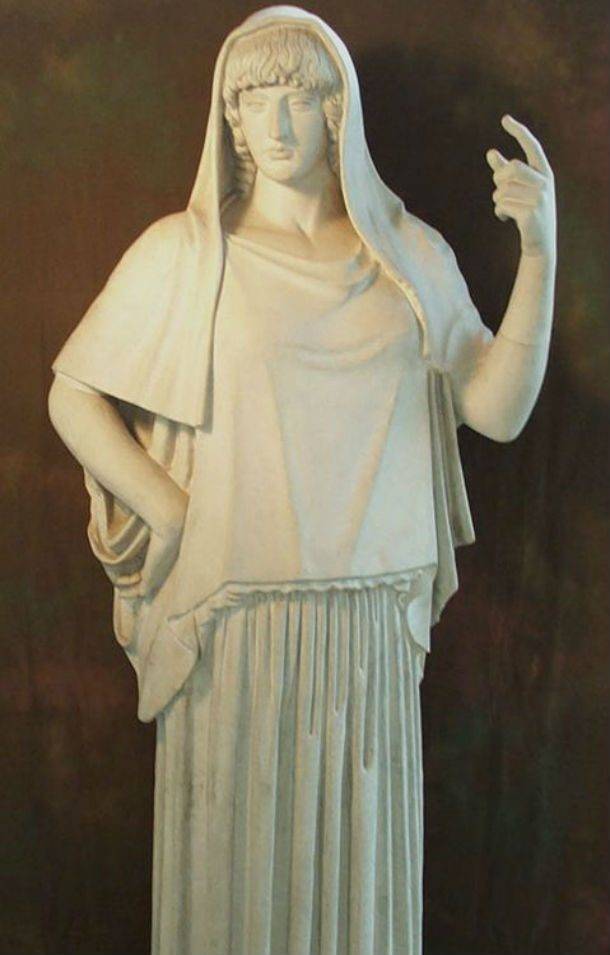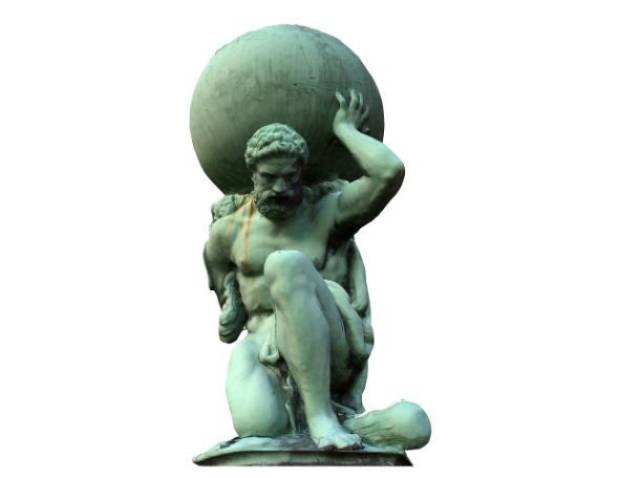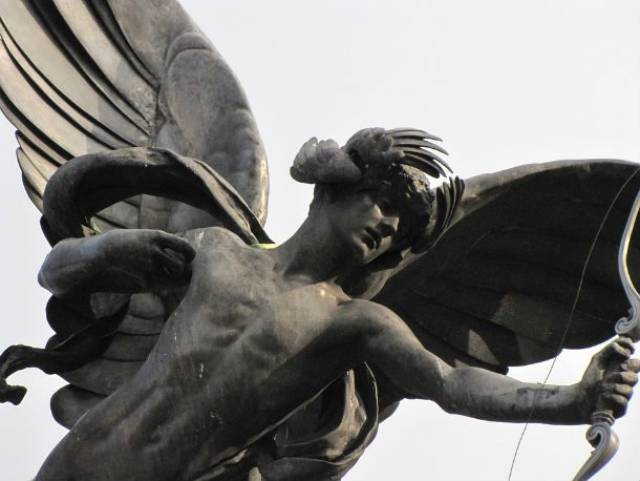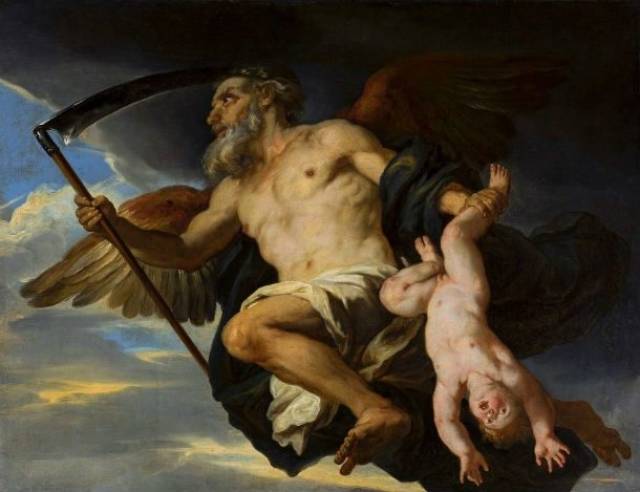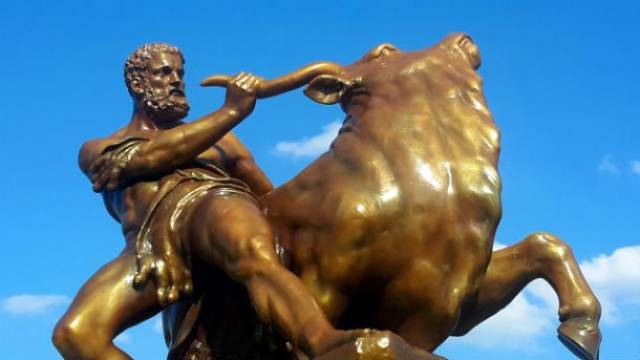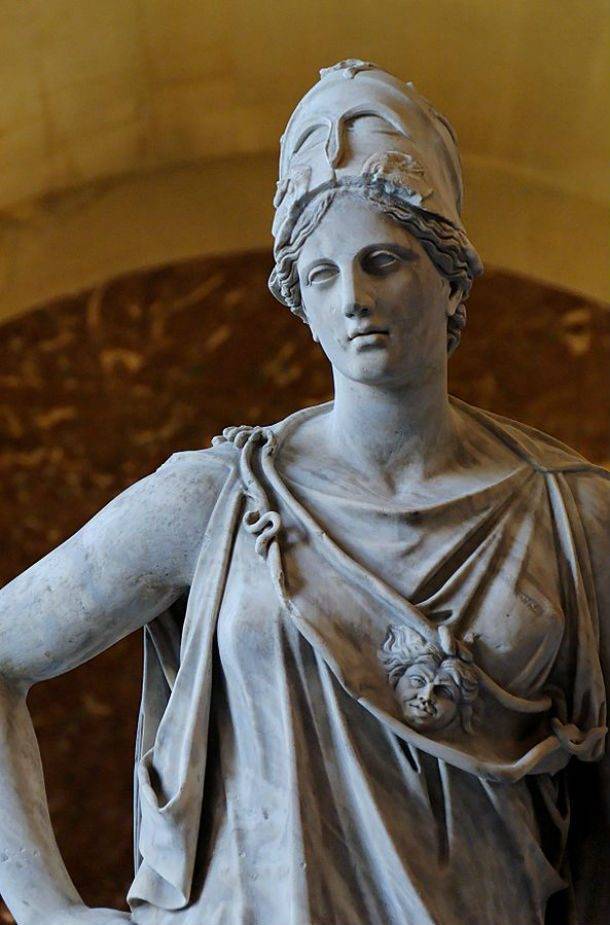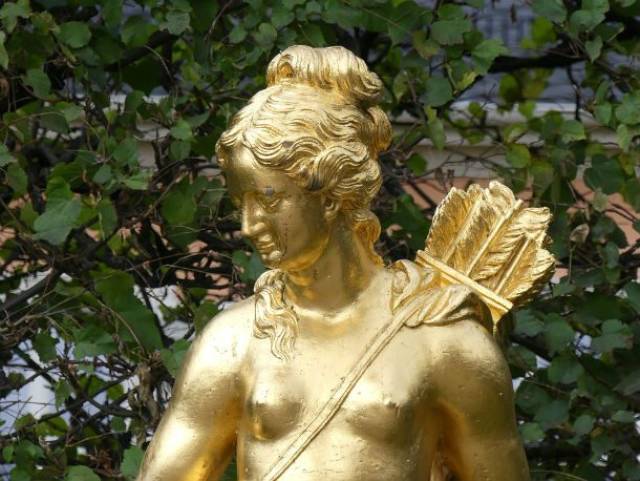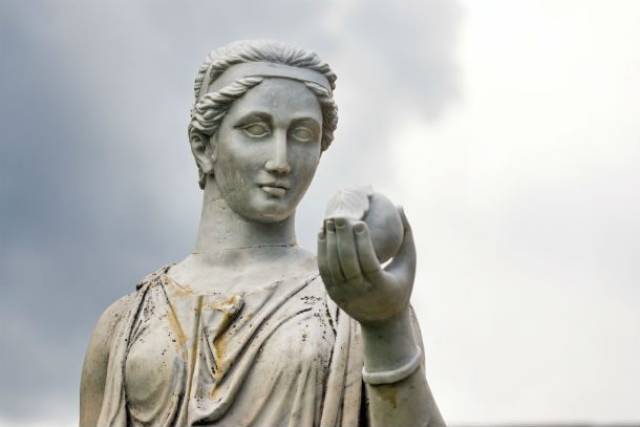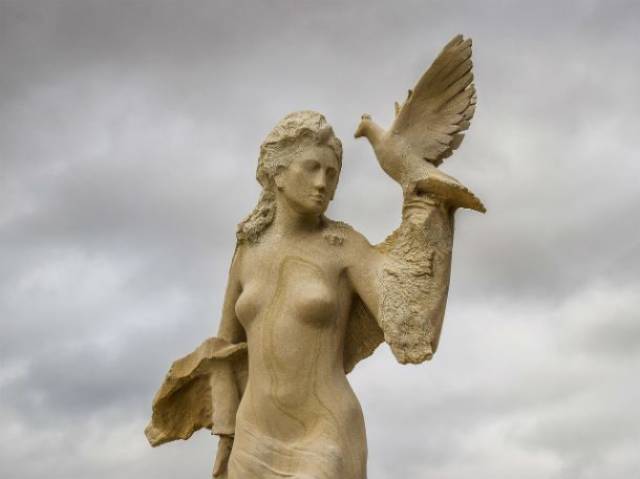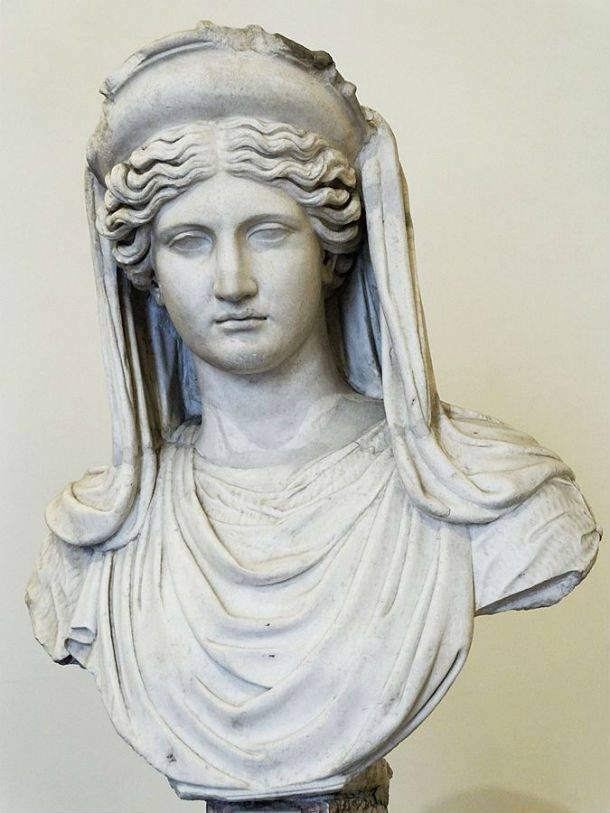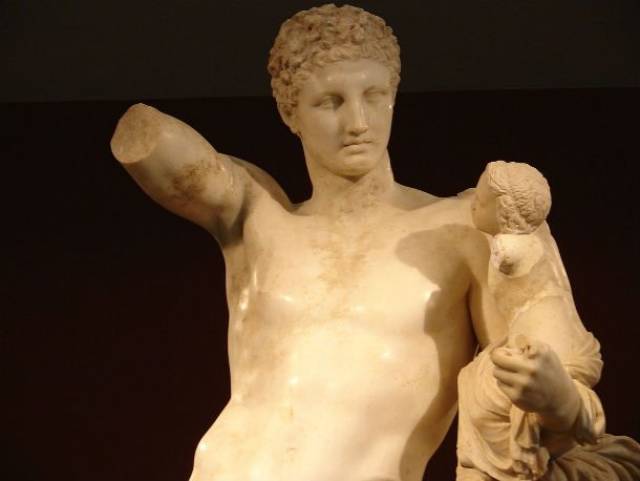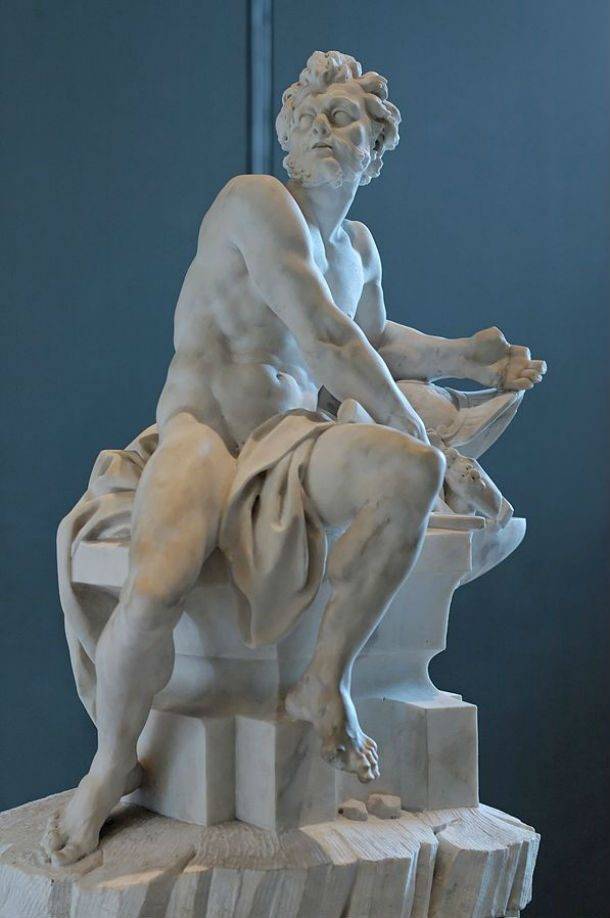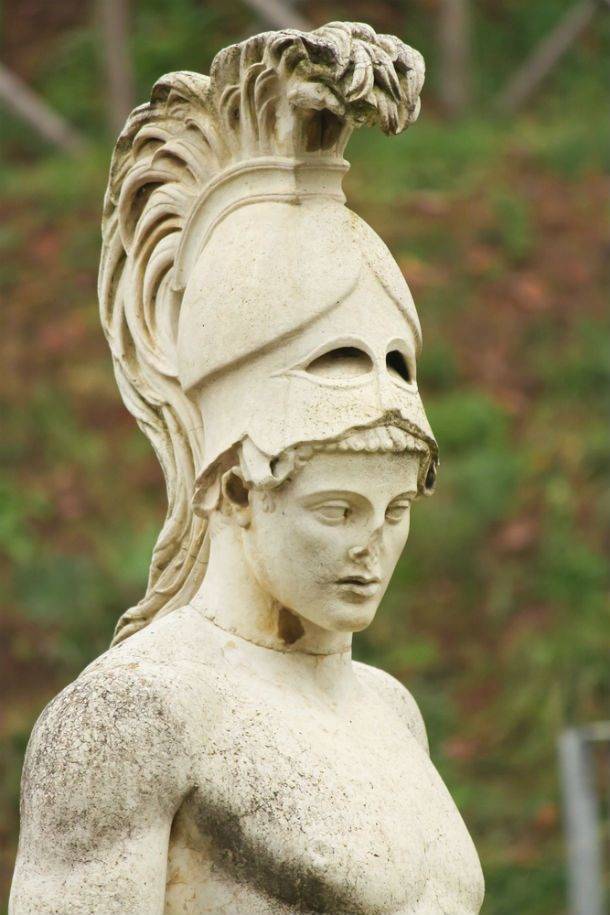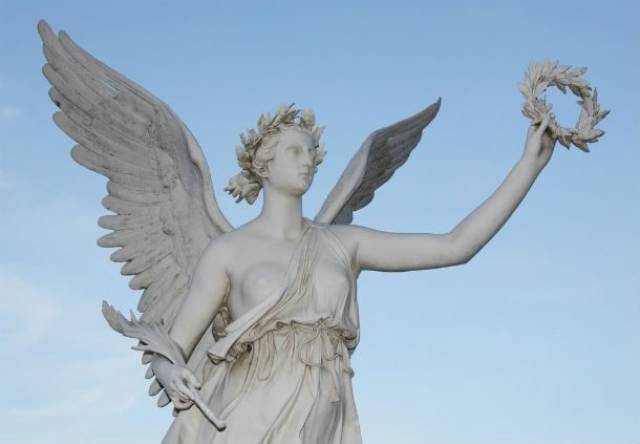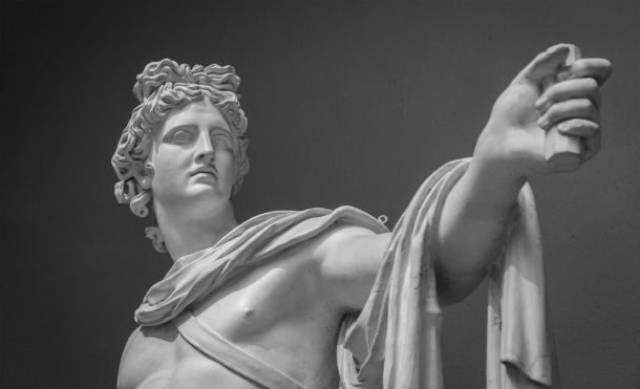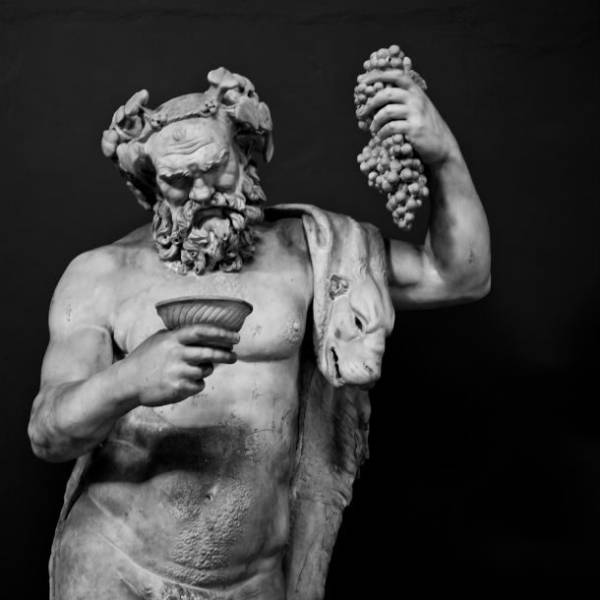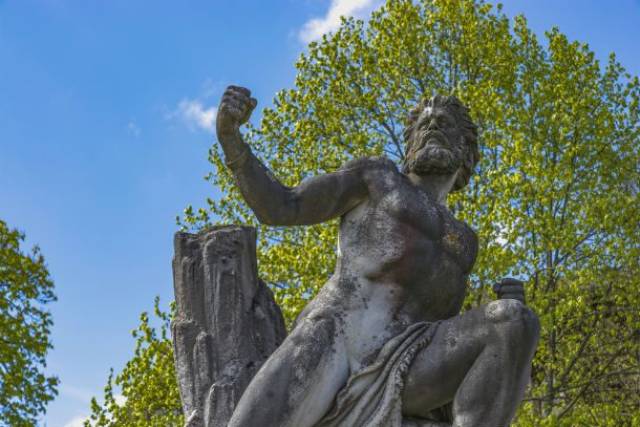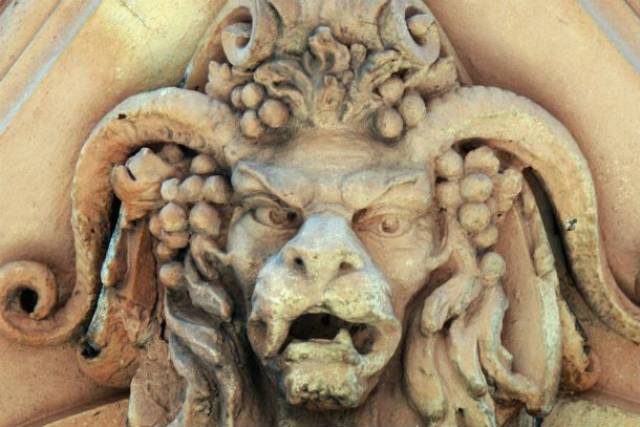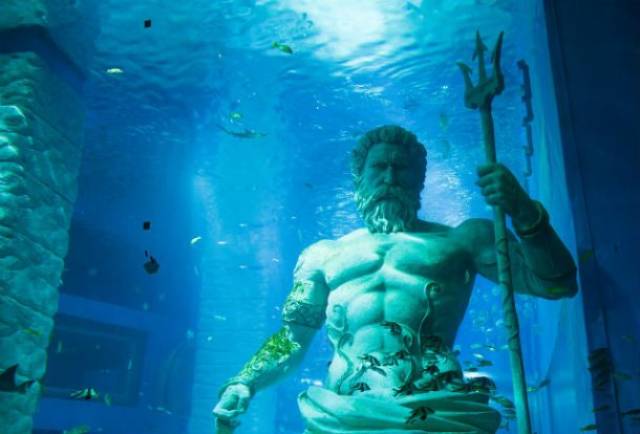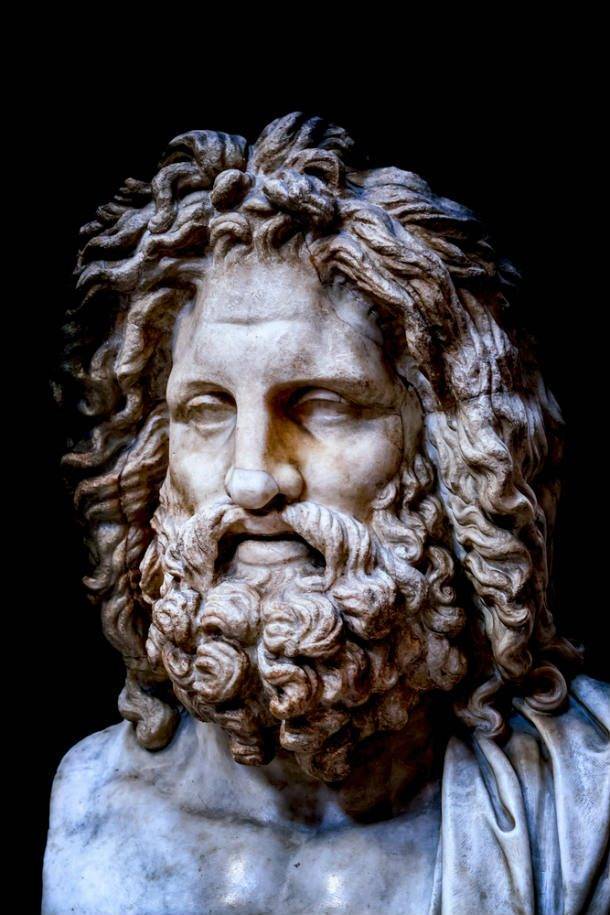Gaia (Mother Earth/Mother Goddess)
Gaia is Mother Earth in Greek goddess formation. She sprang forth from Chaos (nothingness and void) and existed and ruled the universe before any other thing or being. In the Greek creation story, she created it all…from the starry sky (in the form of the god Uranus) to the seas and mountains. Gaia and Uranus gave birth to the Titans. She has a pretty detailed and traumatic history that runs like the best soap opera you’ve ever seen. We’ll learn more about her escapades as we discuss a few of the other gods.
It’s also worth noting that before the worship and cult of Zeus was widespread, the Greeks worshiped Gaia as Mother Goddess. She has temples in several ancient cities including Athens, Sparta, and Delphi among others.
Tartarus (Primordial God)
Tartarus is usually associated with the hell-pit where the Titans were imprisoned, but what many may not be aware of is that Tartarus was also the name of another primordial god. He is often credited with being the father of Typhon, a deadly serpentine giant, and Echidna, a half woman-half snake creature who birthed many of the famous monsters in Greek myth.
Uranus (Father Sky)
Uranus is mostly known for his tumultuous relationship with Gaia, who was also his mother (We’re not sure if that’s what caused a few of their problems.) Together, Uranus and Gaia had many children: the 12 Titans, 3 cyclopses, and 3 hecatoncheires (creatures with 100 hands of unimaginable strength and 50 heads). Due to a prophesy in which one of his sons overthrew him, he banished the children (sources vary as to whom and how many) back into Gaia’s womb. In retribution, Gaia gave Cronus (one of their children) a sickle to castrate Uranus. Guess who was king of the gods now? If you said Cronus, you guessed right!
Nyx (Goddess of the Night)
As the goddess of night, Nyx was the very substance of night…the substance that covered the day. Oddly enough, together with Erebus (next on our list), she birthed both light and day (Aither and Hemera). She also birthed the three Fates, Sleep, Death, Strife and Pain.
Erebus (Personification of Deep Darkness and Shadows)
Unsurprisingly, Erebus married Nyx. There’s something about darkness and night that go together. There aren’t many stories involving Erebus in Greek mythology; however, he’s important to mention as one of the primordial deities. His presence in Greek mythos would help explain periods of darkness or why shadows and areas of darkness existed to ancient Greeks.
Hestia (Goddess of Hearth and Home)
In ancient Greece, were you to enjoy a happy home life and delicious food, you might have found yourself wondering whom to thank; well, Hestia would be your goddess. At one point, Apollo and Poseidon fought for her hand in marriage. She refused both of them and remained an eternal virgin at Zeus’s hearth per her request.
Atlas (Titan)
At one point in Greek mythological history, there was an epic battle between the Titans and the Olympian gods for control over the heavens. Well, the Olympians won and Zeus condemned Atlas (as the leader of the Titans) to hold the heavens on his shoulders as punishment. That’s right, Atlas held the heavens on his shoulders, not the earth as is the common misconception. (Granted, the earth is much easier to depict in sculpture than the heavens.)
Eros (God of Love)
The origin of the god of love is unclear. Some sources have him coming from Chaos (like Gaia and Uranus); others say he was the son of Aphrodite and either Ares or Hermes. Many depict Eros as having a bow and arrow that he could shoot and make anyone fall in love with anyone else.
Many people also associate Eros with the goddess Psyche. Story goes that Eros was sent by Aphrodite to make Psyche fall in love with the ugliest creature on earth. (Jealousy is a powerful motivator.) Eros ended up falling in love with her instead. Eventually, after difficult and tumultuous challenges that make up most love stories, Eros and Psyche were united and even ended up having a child named Hedone, which, if you’re curious, means bliss.
Cronus (King of Titanes/God of Time)
Remember the god who castrated his father, Uranus, on his mother’s orders? Well, that was Cronus. After Uranus was out of the way, Cronus took over control of the universe. With his sister Rhea, he had several children, many of whom are on this list.
There was a prophecy that warned Cronus that one of his children would grow up to overthrow him. Therefore, whenever one of his children was born, he would swallow them. When Zeus was born, Rhea hid him and gave Cronus a stone instead. When Zeus grew up, he rescued his siblings and overthrew Cronus.
Heracles
Commonly referred to as Hercules, this Greek hero had all the usual trauma of being a Greek god: betrayal, intrigue, love, madness…
Heracles was the son of Zeus and Alcmene (who was the granddaughter of Perseus) and therefore the next in line to be ruler of Greece. However, Zeus’s jealous wife Hera tricked Zeus, and their son Eurystheus became king instead. Unfortunately, this wasn’t the end to Hera’s wrath towards Heracles and his very existence. At one point, Hera struck Heracles with a madness that caused him to kill his wife and children and put himself in servitude to Eurystheus. His story’s not exactly as Disney tells it.
Athena (Goddess of Wisdom and War)
The female counter part to Ares, Athena is the goddess of war, but also of so many other things: wisdom, courage, civilization, mathematics (now you know who to blame), strength, strategy, skill, and arts and crafts. One interesting thing about Athena is that she wasn’t born the normal way; instead she sprang forth from Zeus’s head fully grown and in armor. Despite causing Zeus the most massive headache, she is said to be Zeus’s favorite child. There is much more intrigue to her story, but she was quite revered in Athens and was considered the protector of their city and civilization.
Artemis (Goddess of the Hunt, Forests and Hills, the Moon, and Archery)
Artemis is the twin sister of Apollo and the daughter of Zeus and the Titaness Leto. She was fierce and not to be crossed; as such, she was greatly honored in ancient Greece and was depicted as a bow-and-arrow-carrying virgin huntress who also protected animals and to some extent, women and children. The temple built in her honor is one of the Seven Wonders of the Ancient World.
Hera (Goddess of Marriage and Childbirth)
Not only was Hera the Goddess of Marriage and Childbirth, but as sister and wife of Zeus, she also was Queen of the Olympian gods. If you’ll recall from our discussion of Heracles, Hera was a very jealous and vengeful goddess. In fact, it was her viciousness that caused her to be more feared than loved. She had zero hesitation having someone literally torn to pieces (Dionysus), or turning them into an animal (Callisto) among many other wicked, spiteful deeds. At one point Zeus grew so angry at her that he hung her in the clouds with a golden chain and attached heavy anvils to her feet.
Aphrodite (Goddess of Love, Beauty, Pleasure and Procreation)
Aphrodite’s story is interesting, starting with her birth. While one story claims she was born of Zeus and Dione, another story is a bit crazier. Remember the story of Cronus successfully castrating Uranus? Well apparently, the blood and removed body parts fell into the ocean. The foam that was created from this gave birth to Aphrodite. (Okay, so maybe this story is more gross than interesting, but still…)
Most people know Aphrodite for her extreme beauty. She had many lovers and the center of her worship was in Corinth.
Demeter (Goddess of Agriculture, Grain, and Bread)
If you are a big fan of the Earth and what it can provide for you, Demeter would be your goddess.
One of the most common stories told about Demeter was her reaction when Hades kidnapped her daughter, Persephone. As one would expect, it wasn’t pleasant. Wrought with grief, Demeter relentlessly looked for her, and things just simply stopped growing and the seasons came to a stand-still. Eventually, Zeus had to intervene. Persephone was returned to her mother, but not before Hades tricked her into being bound to him for a third of the year. Can you guess which seasons fall during the times she has to return to him?
If you guessed either the hottest part of summer or the dead of winter when the land is threatened by drought and lack of vegetation, you would be correct.
Hermes (God of Commerce)
Hermes had the special ability to go very quickly between human and heavenly realms; therefore, he acted as a messenger of the gods, a link between gods and mortals, and the guide of the souls of the dead to the underworld or afterlife. He was also known to be a bit of trickster. As he was all these things, Hermes was considered the protector of travelers, thieves, and athletes.
Hephaestus (God of Fire and Metalworking)
Hephaestus was an interesting god in that in many ways, he was so different from the rest. For one, he was the only “ugly” god of the immortals. He was also kind and peace-loving, qualities that escaped many of the other deities, who were often quick-tempered and jealous.
Hephaestus was also married to Aphrodite, a product of an arranged marriage to keep the other gods from fighting over the most beautiful goddess.
Ares (God of War)
While Athena represented military strategy, Ares was more representative of the raw violence and “untamed” parts of war. He is also known for having an affair with Aphrodite. Together they produced 8 children, including, some say, Eros (god of love), and the gods of fear (Phobos) and terror (Deimos).
Nike (Goddess of Speed, Strength, and Victory)
Those shoes on your feet have a noble namesake. The Greeks worshiped her because they thought she could grant them strength and speed in order to be victorious in whatever they set out to do. You often see her seated next to Zeus as she helped him in his victory over the Titans. She’s also depicted as carrying a wreath to give to victors and holding a palm branch as a symbol of peace.
Apollo (God of Music, Poetry, Art, Oracles, Plague, Medicine, Archery, Sun, Light and Knowledge)
As you can see from his title, Apollo really ruled over a lot of things; he was quite an important deity to the Greeks. He’s known for his strong family ties as he is the son of Zeus and Artemis’s twin brother. The Greeks worshiped him for controlling both good and ill health and also for controlling the Muses (think music and poetry). Interestingly, Apollo was one of the few gods that the Romans also worshiped under the same name. However, the Romans focused mostly on him being the god of healing and prophecy.
Dionysus (God of Wine and Ecstasy)
While both the Greeks and the Romans worshiped him, an interesting fact about Dionysus is that there’s evidence that he was worshiped before Greek and Roman society was established. It’s not clear where the cult of Dionysus started, but most accounts have him as a foreign god.
In Greek mythology, Dionysus was “born” twice. Once when his mortal mother was tricked by Hera, and she was blasted apart by Zeus’s raw presence, and twice after Zeus sewed him up in his thigh until he was fully developed.
Because he was able to create and control ecstasy, he also played an important part in art and literature.
Prometheus (God of Fire)
In addition to being the god of fire, Prometheus was also a Titan and was known for being quite the trickster. He also didn’t get along too well with Zeus. Story goes that Zeus hid fire from humans, but Prometheus stole it and gave it back. Not only is it said that Prometheus gave fire to humans, but he also gave them civilization. He was also said to be very intelligent with a knack for forethought. In fact, his name means Forethinker.
Hades (God of the Dead/King of the Underworld)
Along with Zeus and Poseidon, Hades defeated his father Cronus and the Titans to gain power over the universe. They split their rule into three, and Hades became ruler of the underworld. Not to be confused with death itself, the ruler of the dead was unforgiving and once people were in his dominion, he wasn’t inclined to let them go.
Poseidon (God of the Sea)
The overarching character of Poseidon is that he was incredibly moody and ill-tempered. He was a god you did not want to cross.
As ruler of the sea, sailors relied on him for safe passage. In addition to god of the sea, he was also said to control storms and earthquakes. He boasted in his masculinity, and like Zeus, went after several women and produced several offspring.
Zeus
We’ve already told you so much about him through the stories of other gods and goddesses. While it’s debated whether he or Poseidon is the most powerful Greek god, Zeus certainly seems to have prominence in the stories. And although he split power of the universe with Poseidon and Hades, Zeus is known as the ruler of all the gods. The Greeks worshiped him as the ruler and personification of all natural phenomenon. In addition to being “father of the gods,” he was also considered “father of men.”


